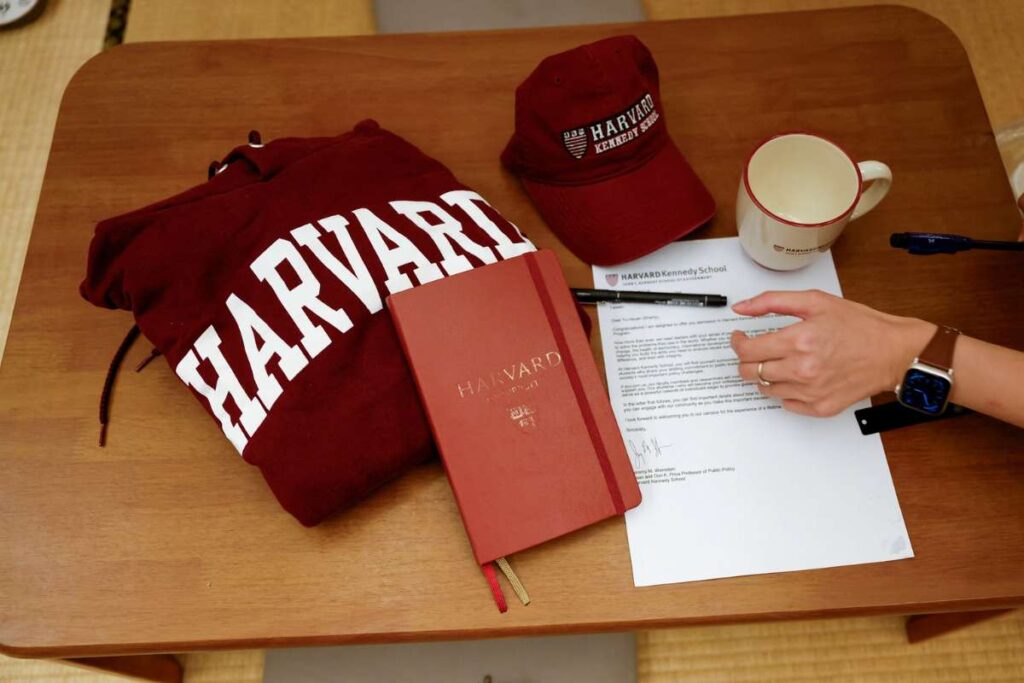In a controversial move that has drawn international concern, the U.S. Department of Homeland Security, under Secretary Kristi Noem, has revoked Harvard University’s ability to enroll international students for the 2025–2026 academic year. The decision, announced on May 22, terminated Harvard’s certification under the Student and Exchange Visitor Programme (SEVP), placing thousands of current and incoming foreign students, including Malaysians, in a legal and academic limbo.
The action was reportedly in retaliation for Harvard’s refusal to provide federal authorities access to records related to its international student body. U.S. officials accused the institution of alleged ties with the Chinese Communist Party (CCP), prompting the ban and raising global concerns about academic freedom and political interference in education.
The ruling means that international students currently enrolled at Harvard University must transfer to other institutions or risk losing their legal status in the U.S. It also prevents newly admitted foreign students from enrolling. The abrupt shift has disrupted long-held plans for many students, particularly those from Malaysia and other countries where Harvard remains a dream destination for higher education.
Malaysian Harvard Alumni and Asian Universities Respond
The Harvard University Club of Malaysia expressed strong disapproval of the U.S. government’s decision, emphasizing its concern for Malaysian students currently enrolled or recently accepted at Harvard. Krishnavenee Krishan, the Club’s deputy president, highlighted the university’s enduring values, quoting its iconic motto: “Enter to grow in wisdom. Depart to serve better thy country and thy kind.” She stressed that the situation must not rob young talents of their chance to access world-class education and contribute meaningfully to society.
In response to the ban, educational institutions in Asia are stepping in to offer displaced students a lifeline. Among them is Malaysia’s Sunway University, whose Group CEO, Professor Dato’ Elizabeth Lee, took to LinkedIn to extend a formal invitation to affected students. She confirmed that Sunway, through its partnership with Arizona State University (ASU), can accept full credit transfers from Harvard, allowing students to seamlessly continue their studies. Additionally, students could obtain a dual qualification, including a British degree from Lancaster University.
Hong Kong and Macao Open Doors to Displaced Scholars
Elsewhere in Asia, the Hong Kong University of Science and Technology (HKUST) has made a bold move by offering unconditional admission to all affected Harvard University foreign students. This includes both undergraduate and postgraduate students, as well as those who held offers to begin their studies at Harvard. HKUST’s action reflects Hong Kong’s broader push to attract global academic talent, with the city’s Education Bureau encouraging other institutions to follow suit.
Meanwhile, Macao’s Education and Youth Development Bureau has issued a statement confirming its close monitoring of the situation. The bureau has urged local universities to assist affected students in their transition and ensure they retain their academic rights and opportunities.
With U.S. policies growing increasingly unpredictable, the rapid response from universities in Malaysia, Hong Kong, and Macao underscores a shifting global academic landscape—one where top institutions outside the U.S. are ready to welcome and support displaced international students in pursuit of their dreams.

